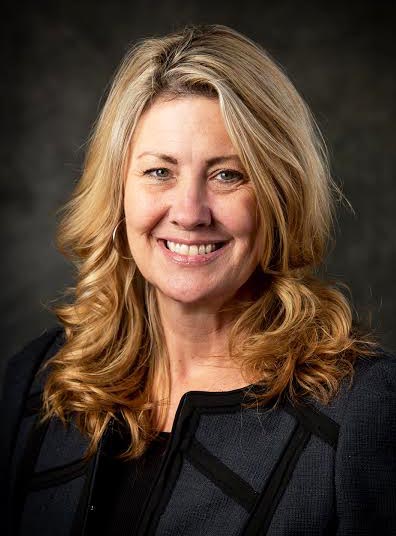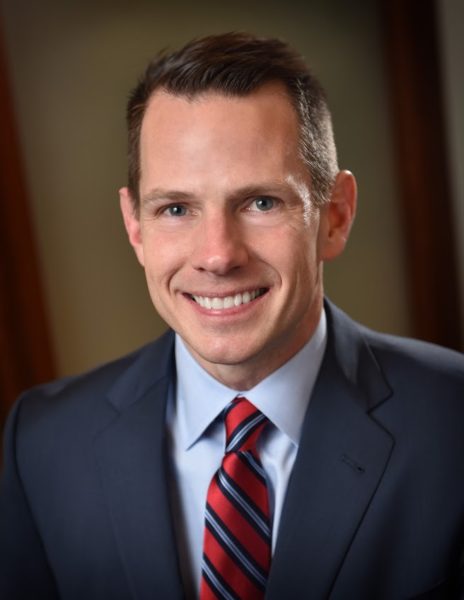Editor’s note: As this story was in final production, the West Virginia Education Association (teachers union) launched a lawsuit that challenges the constitutionality of the new state law that authorizes charter schools among other things. While the outcome of that legal action is pending, this story offers local perspective on the possibility of charter schools as the law stands today.
Will one of the handful of charter schools that are now fair game in West Virginia emerge in Ohio County anytime soon? Maybe, but probably not, according to a variety of sources who shared their thoughts with Weelunk.And why not? Their reasons ranged from the political to the procedural to the practical. Here is what they had to say:
CROWDED PLAYING FIELD
State Sen. William Ihlenfeld, D-Ohio, and state Rep. Erikka Storch, R-Ohio, are politicians from opposite sides of both the aisle and the largely party-line vote that opened the door to charter schools in a June special session of the Legislature. Yet they agreed that Ohio County is not likely a hotbed for charter start-ups.
The level of school choice that is already here would likely inhibit that, they both said.

“… We have strong parochial schools and private schools,” noted Storch, ticking off the names of several of the schools that are already operating inside the county.
And there are several. In addition to Ohio County’s public schools (enrollment of about 5,400), there were eight privately funded and operated schools enrolling about 1,700 students (some of whom are boarders from outside the county) in the 2018-19 school year. (The figures from state Department of Education websites and Private School Review, a website that tracks independent schools.)
The Review lists five parish schools operated by the Roman Catholic Church (Corpus Christi, Our Lady of Peace, St. Michael and St. Vincent de Paul at the PK-8 level and Wheeling Central for grades 9-12) and three secular schools (Wheeling Country Day School at the PK-middle school level, Linsly for grades 5-12 and the Augusta Levy Learning Center for special education students in grades K-3).
The options don’t end there. Across the Ohio border, there are three more private schools operated by other church groups (East Richland Christian Academy, the Quaker-affiliated Olney Friends School and Speiro Academy). There are also homeschooling cooperatives at work in the county.
“… Both of them (parochial and secular private schools) come with heavy tuition,” Storch added as to why she was in favor of the tax-funded charter part of the omnibus law proponents call the Student Success Act.
Storch was among a nearly universal group of Republican House and Senate members to vote in favor of the bill in the special session. While the charter-school provision is only one part of the bill — which also includes less-contentious elements such as a teacher pay raise, increased funding for more mental-health counselors and the possibility of higher pay for teachers in high-need areas such as math and special education — she felt it was important to add that layer of choice even if it never is utilized locally.
She told Weelunk that just having that additional option — which could include a focus on a subject such as the performing arts or science/math — can be important in drawing new residents to the state, an issue for businesses recruiting far-flung employees.
In West Virginia, which was among a handful of states to have not already legalized some sort of charter option, the charter schools will be rolled out in groups of no more than three over the next decade. Additional regulations include the need for approval by their respective county school boards, operating with taxpayer funding rather than collecting tuition and the possibility of revocation if student achievement is lackluster.
“It’s so restricted,” Storch said of measures she believes would prevent too much change too fast. “It’s limited to three (until 2023), and only a county school board can authorize the establishment of a charter.” She noted that the new law also prevents charter schools from having a religious affiliation or being operated by a coalition of homeschoolers.
POLITICAL WILL AND RED TAPE
Such restrictions are also the proverbial red tape, however.

Sen. Ihlenfeld, part of a universal “no” vote by Democrats against the bill, projects it will take some serious political will or program vision to make anyone want to jump that hurdle.
He noted he has yet to run across one Ohio County resident who expressed interest in charter schools. “… There are already so many choices (in Ohio County), and we have a really strong system of public education,” Ihlenfeld said, as to why he believes early charters will show up somewhere else in the state.
He pointed to one of two reasons he opposed a bill he said has “more good than bad” in it — outside lobbying by pro-charter interests — as to why he believes that.
“The folks that were really pushing hard from outside the state will all look at the 55 counties,” he said of the next step now that the bill is proceeding into law, albeit with the constitutional challenge from the teachers union unfolding. Such forces will look for counties where there is an “appetite” for a charter school and will likely seek to sway May 2020 school board elections in favor of pro-charter candidates, he suspects.
“I think you’ll see money coming into local school board races in certain counties where they (pro-charter groups) think there’s a chance,” Ihlenfeld said. “It’s certainly going to be a litmus test throughout the state. Candidates will have to make it very clear where they stand on that issue.”
Boards that swing pro-charter in 2020 would open the door for a full-fledged run at those first three slots, he continued. “I don’t think they (Ohio County residents who oppose or are wary of charter schools) should be worrying in the short term.”
Ihlenfeld noted he also voted against the education reform — which includes many elements that he is in favor of — because of how it proceeded through the legislative system. Earlier versions addressed in the regular sessions of 2018 and 2019 — which included such facets as inhibitions on strikes and a system that would have allowed families opting for private schooling to bank their tuition dollars before taxes — sparked teacher strikes both years.
PRACTICAL CONCERNS
Liz and John Prather of Wheeling are parents whose daughters were affected by those strikes. Both high academic achievers, the daughters were enrolled at Triadelphia Middle School and Wheeling Park High School during one or both of the work stoppages. Their oldest daughter is now in college in the Northeast.
Like Ihlenfeld and Storch, the Prathers believe a charter school is unlikely to pop up in Ohio County. Their reasoning is less politically minded than pragmatic, however.
“It’s much harder to run a school than people give thought to,” Liz Prather said. “Being able to run a school and market a school and have a building for a school. It’s hard to do, and I’m not convinced that people will be able to do it well.”
They know whereof they speak.

In search of a program that would meet their daughters’ higher-end academic needs, the family has connected with Ohio County public schools (both at schools that were in and out of their residential district and with online subject supplementation provided by the county) and with two private schools that offered intriguing educational opportunities but didn’t quite pan out.
Those independent schools — Windhover Montessori and Lyceum Preparatory Academy — ultimately closed. But, not before the family got a taste of what start-up, small-scale education can look like from the inside.
“Parents cooked lunches,” Liz Prather said of how Lyceum worked. She also taught math there as a volunteer. “It was not an economically sustainable model. It was like a cooperative.”
John Prather agreed, noting they really liked teachers at the school and thought the self-paced learning model worked well. “It was as close to homeschooling as you could get without actually homeschooling.”
Both Lyceum and Windhover, Liz Prather said, were dogged by location issues and staffing in spite of their good points. Indeed, it was the lack of a qualified science teacher at Lyceum that the Prathers said brought them back to larger-scale, public education.
Not that they’re complaining.
They see it as democracy at work. Liz Prather, a native of Minnesota, saw the nation’s first charter schools come to fruition in that state while she was in college. They struck her as largely unfair, she said, noting such schools don’t have to worry about feeding or transporting students or many of the other regulatory issues public schools face.
If there are gaps in the current public system, both Prathers said they suspect the difficulty of start-up education may make it more likely that special interests will be accommodated within the consolidated Wheeling Park rather than in a charter effort. John Prather noted the extensive performing arts and vocational training programs that are already in place, saying it’s a boon to the community to have so much choice in a place that’s accessible to all.
Should a tax-funded charter school emerge in Ohio County, the Prathers said they aren’t worried about their own daughters, one of whom is already out of school. But, they do have concerns for children who may not be as academically inclined or who do not have parents advocating for them. Liz Prather said she is especially concerned about students who have functionally been orphaned by the opioid epidemic.
“(Even in) the best-case scenario … charter schools are good, and the (existing) public schools lose funding,” John Prather said.
• A long-time journalist, Nora Edinger also blogs at noraedinger.com and Facebook and writes books. Her Christian chick lit and faith-related non-fiction are available on Amazon. She lives in Wheeling, where she is part of a three-generation, two-species household.


